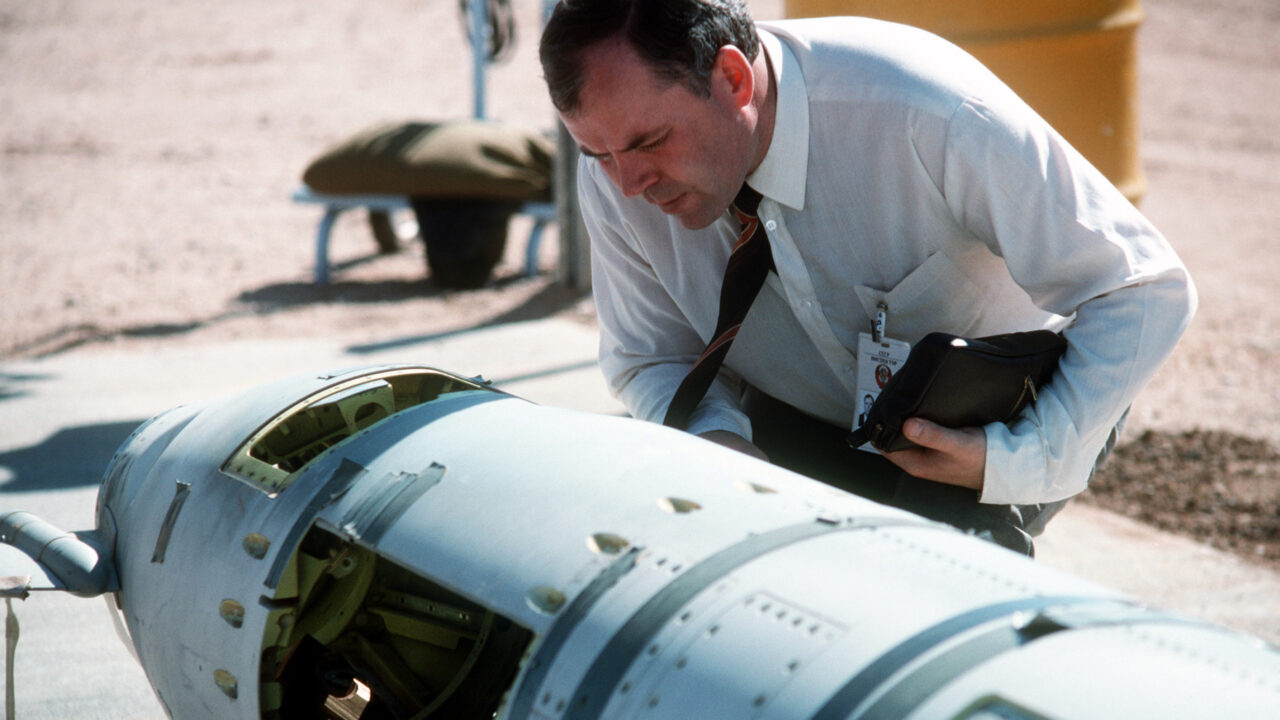Living in a nuclear-curious world: America’s weakening grip on non-proliferation
As China and Russia expand their nuclear arsenals, US security guarantees are beginning to lose their weight. Now, American allies may start to consider taking up the nuclear option themselves
Upon taking office in 2013, Chinese leader Xi Jinping set out to lay “the foundation for a future where we will […] have the dominant position.” The country’s accelerating nuclear weapons buildup suggests that this ambition extends to the nuclear domain, and in this, Xi seems to have the support of his people. Among the 20 countries recently polled by ECFR and Oxford University, China had the most pro-nuclear population by far: eighty-six per cent said they support their country having access to nuclear weapons.
It is not the only data point that should worry Western policymakers. Majorities in Saudi Arabia and South Korea, as well as a plurality of Turkish citizens, also support their countries having access to nuclear weapons. The first is a close security partner of the United States, the latter two formal allies which the US is treaty-bound to defend. None command a nuclear arsenal of their own, but if their leaders determined that changes in the security environment necessitated a nuclear deterrent, their populations would likely go along. Likely Republican presidential nominee Donald Trump’s recent comments encouraging adversaries to attack “delinquent” US allies only adds fuel to such concerns.
Since the dawn of the cold war, US security guarantees are designed to give allies confidence that they remain secure without acquiring nuclear weapons themselves. The arrangements ultimately rest on America’s nuclear arsenal and the promise – in the worst of cases – to employ it on their behalf. So far, the Biden administration has opted for “a ‘better’ approach – not a ‘more’ approach” to assure allies and maintain deterrence, emphasising non-nuclear capabilities and intensified coordination over expanding its nuclear arsenal.
The Congressional Commission on the Strategic Posture of the United States posits that this approach may not suffice for much longer. The bipartisan panel, including progressive Democrats and former Trump administration officials, sees a growing risk of concurrent – be it opportunistic or coordinated – military conflict with China and Russia. Alongside China’s development of intercontinental missiles, the panel observed the country’s buildup of shorter-range nuclear missiles, as well as Russia’s continuing expansion of its already-vast nuclear arsenal designed for regional use. Wary that Russia or China could exploit their growing superiority in regional nuclear capabilities over the US-led alliances in Europe and Asia, the panel recommended developing and adding new systems to the current setup of US non-strategic nuclear forces. Although any such decision would take some time to implement, making it now would signal resolve.
In Europe, this would require leaders to take a hard look at NATO’s nuclear sharing arrangements. In 2012, the alliance declared that its “nuclear force posture currently meets the criteria” for effective deterrence and defence. Two years later, Russia annexed Crimea, and in 2022, it followed with its full-scale invasion of Ukraine. In between, Moscow violated the Intermediate-Range Nuclear Forces treaty by deploying a non-compliant ground-launched cruise missile capable of hitting targets across Europe. NATO’s nuclear capability, meanwhile, has largely remained the same since the 1990s: if called upon, allied fighter jets would carry US nuclear bombs deployed at airbases in Belgium, Germany, the Netherlands, and Italy.
NATO’s stance sits most uneasily with central and eastern European allies. According to ECFR polling, societies that are most concerned about a Russian military attack are least opposed to having access to nuclear weapons. With their public’s apparent backing, Polish leaders have been most vocal in expressing their desire to be included in the club of countries contributing jets to NATO’s nuclear mission and hosting US nuclear weapons. Poland’s and other NATO countries’ purchases of F-35 stealth aircraft, which the four current host countries plan to use for their nuclear sharing role, could facilitate such an expansion. There are also calls to develop and deploy new nuclear weapons, such as stand-off cruise missiles or ground-launched systems. As West Germany’s need for nuclear assurance was a major driver for the continuous adaptation of NATO’s nuclear posture throughout the cold war, Berlin should be particularly empathetic to similar voices from today’s frontline allies.
Discussing adaptions to NATO’s nuclear posture assumes there is a posture to adapt – without US extended deterrence this is hardly the case
However, discussing adaptions to NATO’s nuclear posture assumes there is a posture to adapt – without US extended deterrence this is hardly the case. Germany’s former foreign minister Joschka Fischer and others have begun to think out loud about the possible return of Donald Trump to the White House and its nuclear implications. Trump questioning America’s commitment to its allies would leave Europeans with no good options. A US withdrawal from NATO would only add more bad ones. National nuclear weapons programmes seem a remote possibility. But if the non-proliferation regime were to crumble under unpunished Russian nuclear use in Ukraine, for example, governments the world over might conclude that it no longer serves their security interests and instead reach for the bomb themselves.
The European Council on Foreign Relations does not take collective positions. ECFR publications only represent the views of their individual authors.





